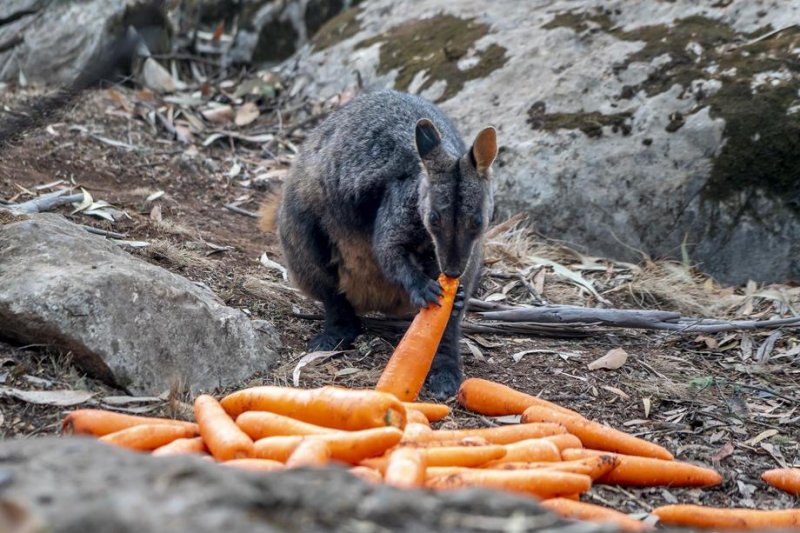The Australian government has dropped around 4,500 pounds of carrots and other vegetables to endangered wallabies affected by the bushfires. Photo courtesty the New South Wales National Parks and Wildlife Service/EPA-EFE
Jan. 13 (UPI) -- The government of New South Wales has instituted aerial food drops to help preserve its population of endangered wallabies, whose habitat is being burned in the Australian bushfires.
NSW Environment Minister Matt Kean said nearly 4,500 pounds of food had been dropped as part of a major effort to help not just the endangered Brush-tailed Rock-wallaby but all wildlife across the southeastern Australian state, where more than 12 million acres have been decimated in the unprecedented wave of bushfires.
"Initial fire assessments indicate the habitat of several important Brush-tailed Rock-wallaby populations was burnt in the recent bushfires," Kean said. "The wallabies typically survive the fire itself, but are then left stranded with limited natural food as the fire takes out the vegetation around their rocky habitat.
"The wallabies were already under stress from the ongoing drought, making survival challenging for the wallabies without assistance," he said.
Wildlife officials said they dropped sweet potatoes and carrots into 11 different sites across the state last week, along with about 220 pounds of food and water in three other areas hosting wallaby colonies.
The bushfires have been disastrous for all kinds of wildlife in Australia, researchers say.
Chris Dickman of the University of Sydney estimated last week that more than 800 million animals had been killed by bushfires in New South Wales, with a national impact of more than 1 billion animals.
"I think there's nothing quite to compare with the devastation that's going on over such a large area so quickly," he said. "It's a monstrous event in terms of geography and the number of individual animals affected."















